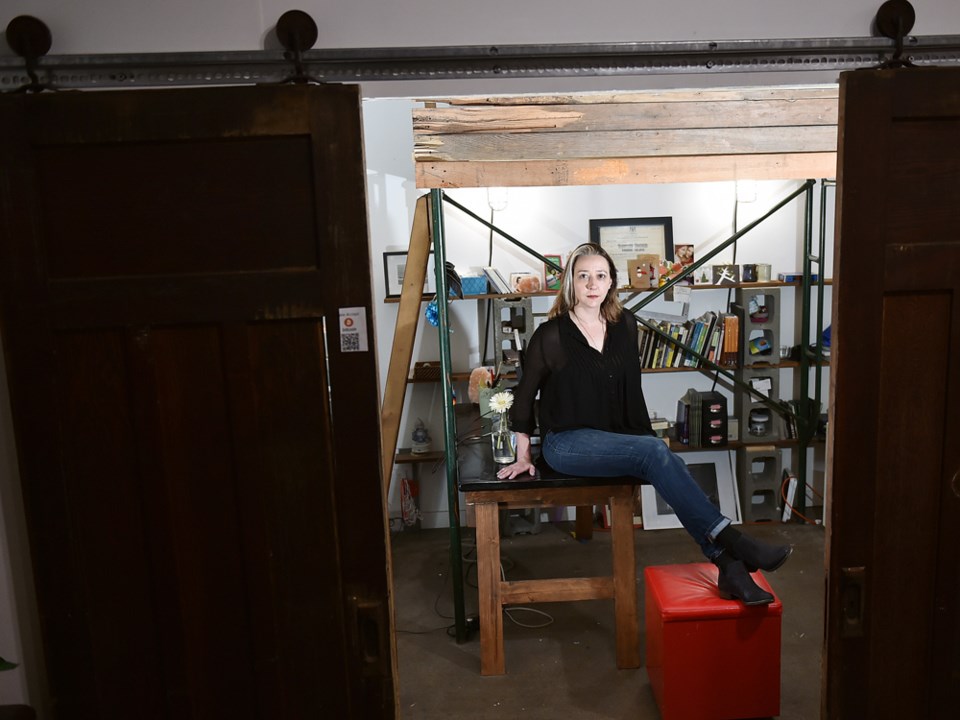Pockets of Vancouver’s arts and culture communities are galvanizing and consolidating their efforts to push back against a city that’s increasingly pushing them out.
Scheduled for Thursday, April 5, a forum called “Where Culture Works: How Can Vancouver Preserve Culturally Valuable Spaces?” will delve into preserving culture spaces and the workers who make them tick.
The forum is being organized by Coworking BC co-founder Denise Brennan, who operates a 5,000-square-foot office in Railtown that’s inhabited by all manner of creative types — referred to as culture workers — in a communal, office-space setting.
"Their work is not supported financially by any category, so the idea of arts and culture is an incomplete one,” Brennan told the Courier. “Although I’ve spent most of my life supporting people who are producing art and culture, there is no system in place to recognize that work.”
Thursday’s speakers will represent an array of the city’s mosaic. Indigenous, black and South Asian community leaders will speak to the realities in those cultural sectors, and the panel discussion will be moderated by Joannah Connolly, editorial director of Glacier Real Estate.
“With so many artists, musicians and collaborators increasingly squeezed out of their working spaces by rising rents, taxes or redevelopment, it’s crucial that protections are put in place to keep creatives in the centre of our city,” Connolly said. “Whether development is seen as necessary or merely inevitable, how can we find ways to meet Vancouver’s growth needs without ripping out its artistic heart? If we can’t find solutions, new housing and commercial spaces could come at the cost of a neighbourhood’s soul. Our panel discussion aims to raise and debate a range of ideas for preventing this fate.”
Brennan’s been in her shop on Railway Street for three years and about 60 people inhabit the space. On the personal side, she sees at least one friend a week leave Vancouver for cheaper cities. On the business end, she loses at least one coworker a month. Many relocate to Kelowna, Alberta or Montreal for more affordable options.
“Renovictions are a massive part of it,” Brennan said. “Lots of people are leaving because once they get renovicted, they look around and there is nowhere that they can afford to live.”
Somewhere in the middle, between friends and coworkers, Brennan, as the operator of the space, has to reconcile and deal with costs. They’ve been the stuff of nightmares for any small business owner. Rent increases, triple net leases and skyrocketing land values have resulted in a $3,000 increase in monthly costs since 2015. Operational costs have jumped $1,800 in that same period.
The building’s assessed value for 2018 is $17.5 million. The previous assessment came in at $14.3 million.
It’s not so much her landlord Brennan begrudges, but rather how property assessments are determined.
“Private and public appraisers use a number of generally accepted valuation approaches to develop market value estimates — direct comparison, cost and income. Each approach analyzes a property's highest and best use — the most probable use of a property that would return the highest value, considering legal, economic, and social factors,” reads the BC Assessment website.
And there’s Brennan’s conundrum.
“Developers have no reason to not build the thing that going’s to bring them the highest return on investment — it’s literally built into the legislation,” Brennan said. “Arts and culture can never compete with that. When the highest and best use is specifically seen through the filter of profit, that doesn’t reflect the true value.”
Thursday’s forum runs from 7 to 10 p.m. at the Imperial on Main Street. Admission is by a suggested donation of $10. Info is online here.



